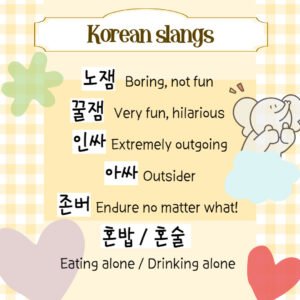What Exactly Is 아쉬움? — More Than Just Regret!
What is “아쉬움”? 😞
아쉬움 refers to a feeling of lingering regret, disappointment, or a sense that something is incomplete or slightly lacking.
It’s not usually about deep sorrow or failure — it’s more subtle than that.
Think of it as the emotional echo that follows when something doesn’t quite go the way you wanted, or ends before you were ready.
It’s the sigh after a fun day ends.
The tiny pang in your heart when you say goodbye.
The “what if” after missing a chance.
There’s no perfect translation, but depending on the context, 아쉬움 can be expressed in English in several natural ways:
아쉬웠어요: I felt a bit of regret / It was bittersweet / I was a little disappointed
아쉬움이 남아요: It left me wanting more / There’s still a lingering feeling
아쉬운 점: Something that could have been better / A downside / A small letdown
아쉬운 마음: A bittersweet feeling / A sense of longing or sadness
Examples in Context ✨
1. 헤어지고 나서 아쉬움이 남았어요.
→ I still felt a bit of regret after saying goodbye.
(Here, “아쉬움” expresses an emotional attachment that wasn’t fully resolved.)
2. 여행이 너무 좋았는데 좀 짧아서 아쉬웠어요.
→ The trip was amazing, but it was a little short — I wish it lasted longer.
(That sense of “I had a great time, but I’m not ready for it to be over.”)
3. 발표는 괜찮았는데 준비를 더 했으면 좋았을 것 같아서 아쉬워요.
→ The presentation went okay, but I feel like it could’ve been better if I’d prepared more.
(A soft kind of self-disappointment.)
4. 아쉬운 점이 있다면, 시간이 너무 짧았던 거예요.
→ If I had to point out one downside, it’s that the time was too short.
(This shows how 아쉬움 can also be used when giving mild critique.)
If you’re trying to sound more like a native Korean speaker, understanding 아쉬움 is essential!
It captures that gentle, reflective feeling we all experience when something beautiful passes by a little too quickly.
So next time you feel that soft tug of longing or that quiet “if only…”, you’ll know:
That’s 아쉬움 ✨




